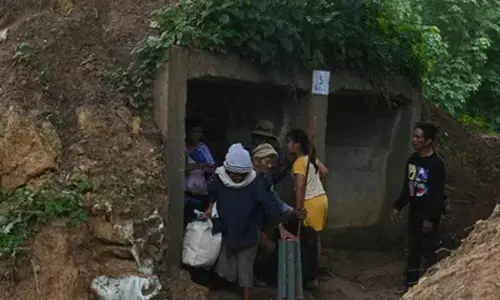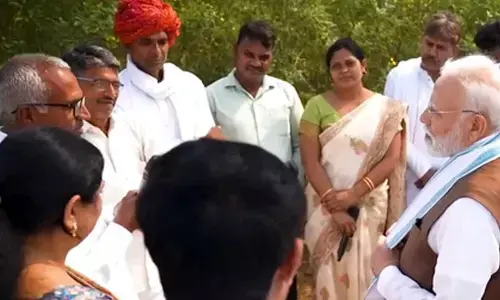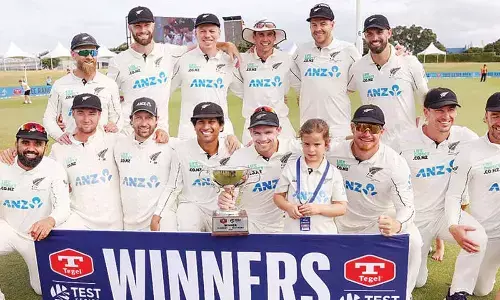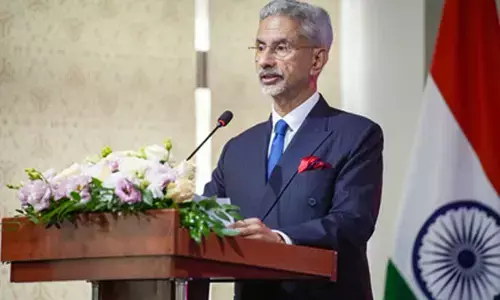Let the rule of law prevail over the rule of outlaws!
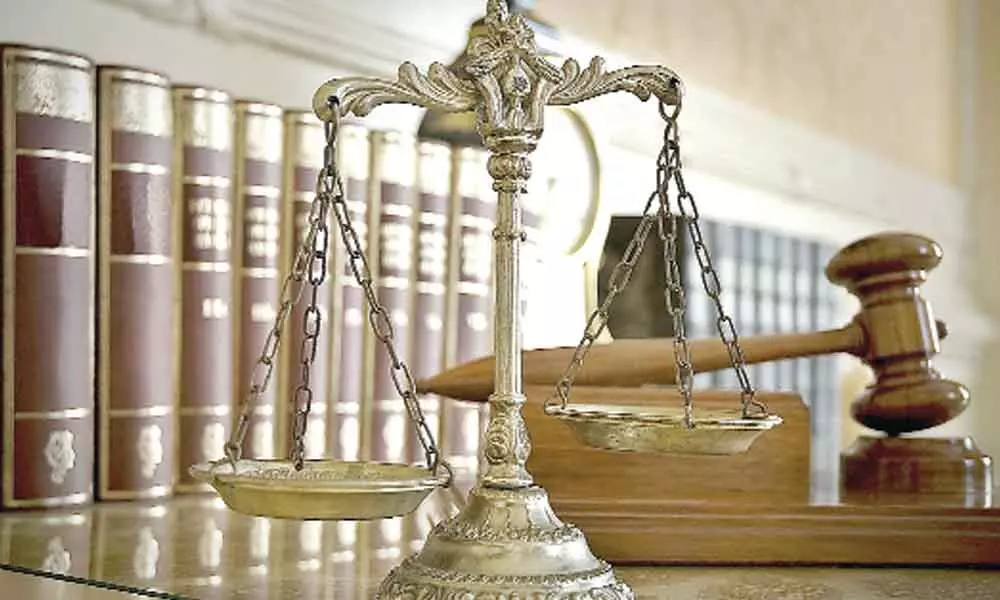
‘Draconian’ laws must to deal with draconian elements!
The moot question being discussed among the knowledgeable people today here at home is whether there should be the supremacy of the Rule of Law or the Rule of Outlaws? The growing intolerance among people in power as well as out of power has been the root cause of the present sorry state of affairs
The moot question being discussed among the knowledgeable people today here at home is whether there should be the supremacy of the Rule of Law or the Rule of Outlaws? The growing intolerance among people in power as well as out of power has been the root cause of the present sorry state of affairs.
Let us take stock of the recent happenings. Forgetting the spirit of federalism enshrined in the Constitution of India, almost all the opposition parties to the ruling Bharatiya Janata Party-led NDA have been up in arms against the Union government. Each and every decision, including the laws enacted by the Parliament wherein their own elected MPs are also sitting, is targeted viciously. That is the reason why abrogation of Articles 370 and 45A of the Constitution, three Bills for the welfare of farmers and the Citizenship (Amendment) Act were senselessly opposed in the street by the opposition parties. Violence and lawlessness during the pre and post Assembly elections in West Bengal too, has been a part of this anti-Centre attitude of the opposition parties.
Unfortunately, the ruling clan at the Centre has not risen to the occasion and giving a long rope to the divisive, extremist, terrorist and Jihadi elements masquerading as political workers. Consequently, the life and property of the people, in whose name and for whom the Constitution has been framed, are at stake.
Ours is the largest functional democracy in the world with an elected President. Under Article 53 of the Constitution of India "the Executive power of the Union shall be vested in the President and shall be exercised by him either directly or through officers subordinate to him in accordance with the Constitution." In the same breath, the Constitution also declares the President as the Supreme Commander of the Defence Forces of the Union. Further, as per Article 74 (1), a provision has been made in the Constitution for the Council of Ministers headed by the Prime Minister "to aid and advise" the President. The Constitution specifically binds over the incumbent President that he would discharge the functions of the President 'faithfully' and will to the best of his ability preserve, protect and defend the Constitution and the law. The Council of Ministers, among others, has all the powers about the matters on which the Parliament is competent to make laws.
Thus, virtually the Council of Ministers has been vested with the Executive powers. The President is not only constitutionally bound to accept the advice tendered by the Council of Ministers, but also his position as the President is just titular in reality. Therefore, the Council of Ministers headed by the Prime Minister is an all powerful organ of the governance. The role of judiciary is limited to the judicial review of the actions taken by the Council of Ministers and answering any point of law upon reference by the President.
The task of preserving, protecting and defending the Constitution virtually falls in the realm of the Council of Ministers though the President has committed to do so while stepping into the office. In this background, open defiance of the authority of the Central Bureau of Investigation and the august office of the Governor by a person no less than an elected Chief Minister, Mamata Banerjee deserves serious consideration by the Council of Ministers. With her active planning and execution of sinister plans through blatant misuse of state machinery and her party cadre, she has thrown an open challenge to the Constitution and the law enforcing agencies. People in West Bengal including the Governor, are living under the shadow of fear and violence and are forced to migrate to other States for safety and security. In short, there has been complete breakdown of the constitutional machinery in West Bengal.
Therefore, the President acting through the Council of Ministers headed by the Prime Minister, is duty bound to preserve, protect and defend the Constitution which grants fundamental rights to all citizens at any cost urgently. Let the Council of Ministers rush to the 'aid' of the President and tender suitable 'advice' without losing any time so that the President is not let down in his faithful and sincere attempt to enforce the Rule of Law while crushing ruthlessly the attempts by the outlaws to undermine the President's authority.
SC on guarantor's liability
In a remarkable judgment on the liability of guarantors for corporate loans from banks, the Apex court on May 21, held that approval of a resolution plan does not ipso facto discharge a personal guarantor of a corporate debtor of his liability under the contract of guarantee.
Earlier, on November 15, 2019 the government had issued a notification fastening liability of bad debts on corporate guarantors for loans obtained by their companies, which subsequently failed to pay up and went into resolution proceedings under the Insolvency & Bankruptcy Code (IBC).
After this judgment, big sharks, who offered personal guarantees and availed huge amounts as loans from the banks and after their companies became defaulters, went ahead with resolution proceedings under the IBC and duped the banks of huge public money, will be liable to clear off the defaulting company's balance amount due from their private wealth.
Custodial torture of MP!
Imagine the plight of a sitting Member of Parliament (MP) being taken into custody and tortured by the police throwing all norms of decency and legality to winds!
One wonders if this can happen to a privileged elected representative, then what safety and security could be expected for a common man!
The MP, KR Krishnam Raju, who is facing the serious charges of sedition, was granted conditional bail by the Supreme Court after perusing the medical report submitted by the doctors of the Army Hospital at Secunderabad. Notably, the medical report showed undisplaced fracture of second toe of left foot of Raju and contusions and edema on the soles. Therefore, the bench comprising Vacation judges, Justice Vineet Saran and Justice BR Gavai observed that the possibility of custodial torture of Raju cannot be ruled out. In the result, the court granted conditional bail to Raju.
Blow to Me Too
After seven-and-a-half years of prolonged court proceedings, the Court of Additional Sessions Judge, Kshama Joshi acquitted Tehelka founder-editor, Tarun Tejpal on May 21, of the charges of raping a colleague in a luxury hotel in Panaji (Goa) in 2013. Immediately after the pronouncement of judgment, Goa's Chief Minister Pramod Sawant said that the government will prefer an appeal in the High Court.
The judgment has served a severe blow to the activists which supported the global movement called, Me Too, wherein the women victims of sexual harassment were encouraged to come out in open to name and shame the alleged perpetrators of crimes against them.



